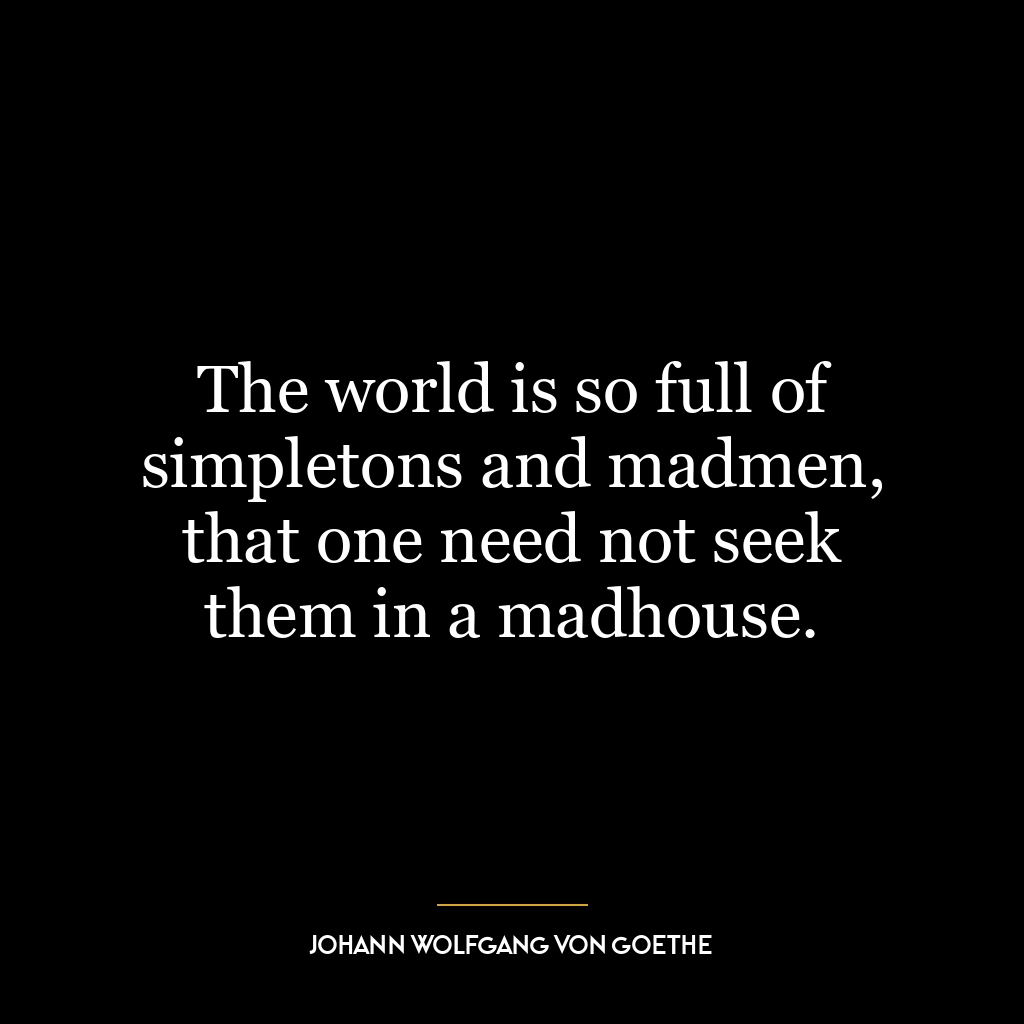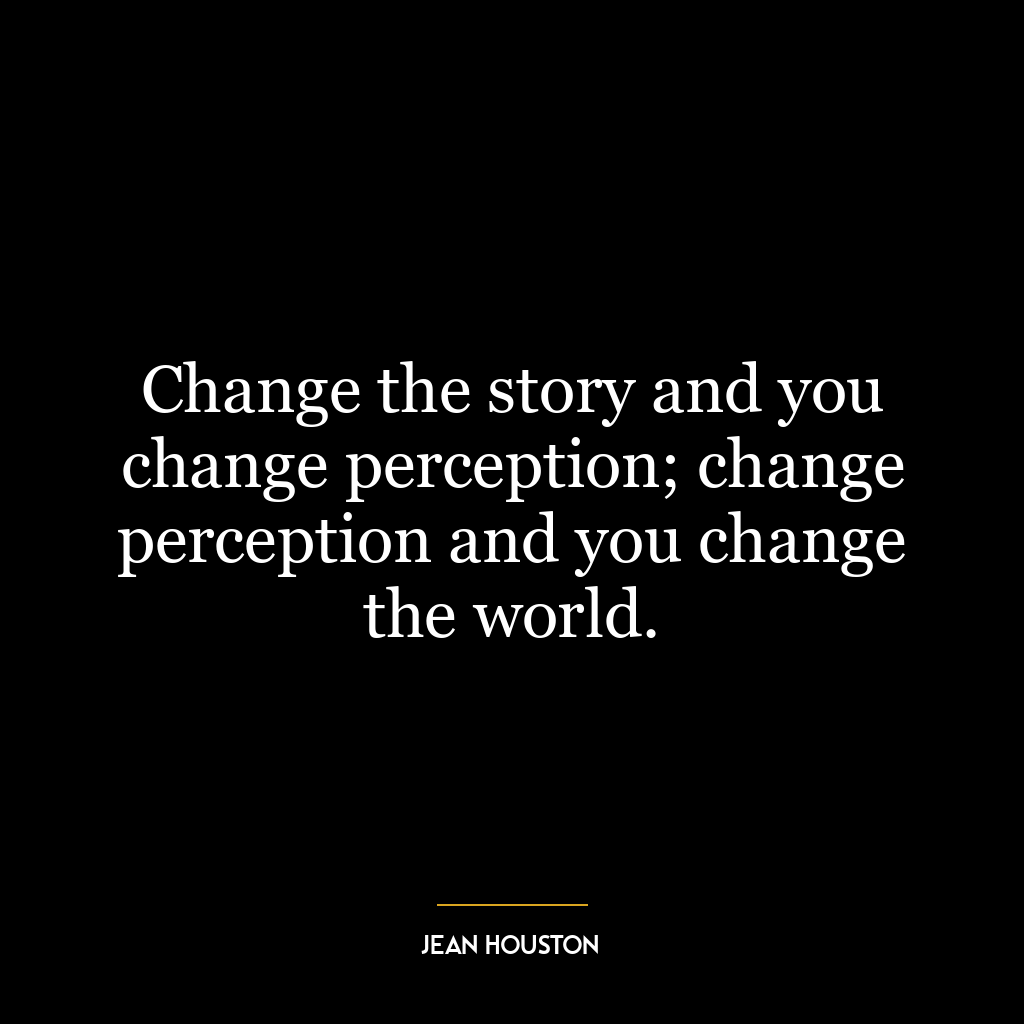This quote implies that our world is filled with people who behave irrationally or foolishly, and one does not need to go to a literal madhouse to find them. It’s a commentary on the human condition, suggesting that madness and simplicity are not confined to those we typically label as such, but are traits that can be found in every corner of society.
In essence, Goethe is saying that people often act without thinking or without considering the consequences of their actions, and this is true regardless of their social standing or their supposed sanity. This quote is a reminder of the ubiquity of folly and the universality of human irrationality.
Applying this to today’s world, we can see numerous examples of irrational behavior and simplicity in our societies. Whether it’s the spread of misinformation on social media, the prevalence of divisive political rhetoric, or the persistence of harmful stereotypes and prejudices, it’s clear that “simpletons and madmen” are not confined to institutions.
In terms of personal development, this quote can serve as a reminder to always question our own actions and beliefs, to strive for critical thinking and rational decision-making. It’s a call to self-awareness, urging us to recognize and confront our own irrational behaviors and simplistic thinking. By doing so, we can strive to be better, more thoughtful individuals, less prone to the follies and madness that Goethe refers to.
In a broader sense, it could also be seen as a call for empathy and understanding. Recognizing that everyone, including ourselves, can act foolishly or irrationally at times, can help us to be more patient and forgiving with others and ourselves.













